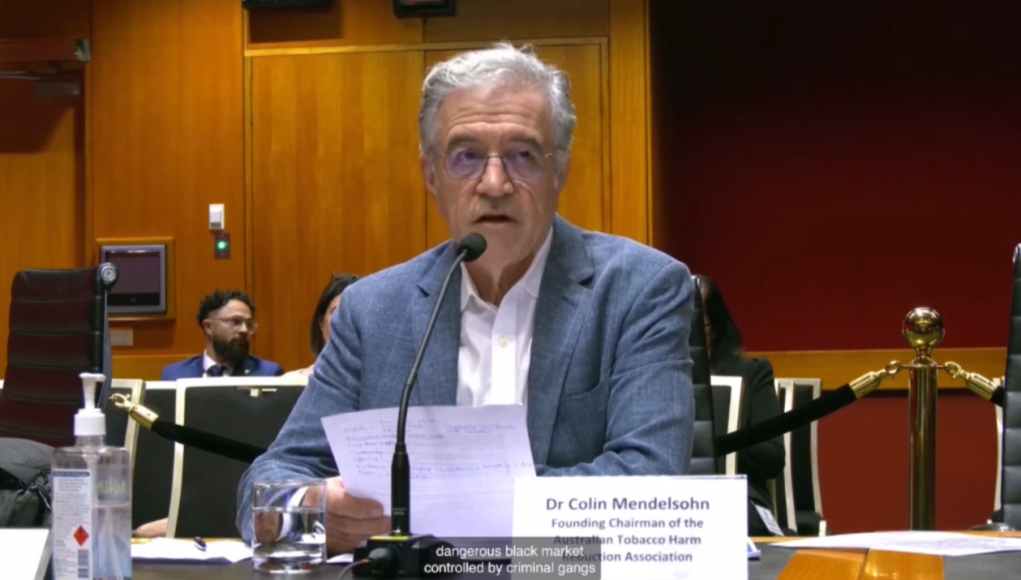Sadly, misinformation permeated the discussion, with several MPs perpetuating inaccuracies about vaping. Theories consistently debunked by science, such as the one claiming that vaping is a gateway to smoking, as well as others linking vaping to fatalities and/or serious health conditions, were referred to as sound theories which should inform policy.
The smoking cessation potential of vapes is ignored
Meanwhile, the fact that vaping carries relatively minor health risks compared to other risk behaviours adopted by teens, such as smoking and binge drinking, was an unpopular argument. Sadly, so was the fact that vapes are the most effective smoking cessation tools to date.
Thankfully, disagreement arose regarding the efficacy of current regulatory approaches, with Coalition MPs criticizing the prohibition model for failing to curb youth vaping and fuelling the black market trade in vaping products. The Nationals proposed an amendment to the Bill, criticizing the government’s handling of the illicit vaping market and advocated for a regulated retail model akin to to the one for alcohol and cigarette sales.
ALP MPs want more of what is not working
However, ALP MPs called for more of what is evidently failing miserably: stricter enforcement measures and continued prohibition, believing that increased border control and policing would mitigate the illicit market.
The way forward now hinges on the outcomes of the Senate Inquiry, which will assess the efficacy of existing regulatory approaches and determine the best path forward for vaping regulation in Australia. The committee faces the crucial task of deciding between maintaining the prohibition model or transitioning to an adult consumer model that regulates vapes similarly to cigarettes. Submissions to the Inquiry will shape the future of vaping regulation in Australia, sadly however, the outcome of the inquiry seems to be pre-determined.
The Coalition of Asia Pacific Tobacco Harm Reduction Advocates (CAPHRA) has long criticized Australia’s strict vaping regulations, warning that they will criminalize vapers. CAPHRA emphasized the need for a balanced and an evidence-based approach to tobacco harm reduction (THR), comparing Australia’s failing approach to New Zealand’s successful strategies.
Australia should follow successful examples
In fact, while Australia’s regulations have led to unintended consequences such as black market activities and increased smoking rates, New Zealand’s sensible regulatory framework has contributed to a decline in smoking rates.
Evidence-based approaches are proving successful in countries like New Zealand, the Philippines, and Malaysia. In light of this, CAPHRA emphasizes the importance of prioritizing public health and learning from successful models. The call to action is clear: embrace harm reduction, learn from successful examples, and prioritize the health and well-being of citizens.
The NSW Parliamentary Inquiry into vaping
Meanwhile, Australian smoking cessation expert Dr. Colin Mendelsohn, who recently gave evidence at the NSW Parliamentary Inquiry into vaping, revealed that he was shocked at the level and amount of rampant misinformation presented by “experts”. Tragically, the guidelines proposed by these personalities would lead to further harm to public health if followed.
Mendelsohn emphasized the need to balance concerns about harm to young people with the substantial benefits of vaping in reducing smoking-related death and disease. In line with THR experts worldwide, he advocates for regulation reflecting the positive impact of vaping on public health and suggests making vapes available as adult consumer products from licensed retail outlets. This would reduce the black market and subsequently youth access.
The Australian expert warns against continuing the current failed model under criminal control and urges the Committee to rely on honest, accurate, and unbiased evidence to make rational decisions, rather than being influenced by ideology or vested interests. Sadly however, he does not have high hopes.
Mendelsohn told Vaping Post that vapers were largely misrepresented. “At the two Hearings, there were only 2 other speakers to support sensible regulation, Professor Nicole Lee Dr and Jody Moller. The rest were part of the anti-vaping groupthink majority. No vapers were represented,” he reported.
More of Australia’s Ineffective Vape Restrictions Go Into Effect








